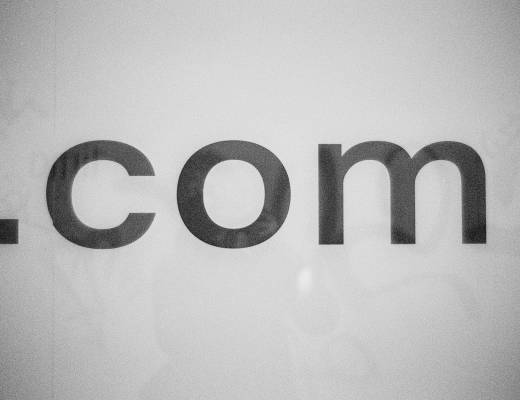Starting a business is a complicated, challenging journey filled with myriad lessons. We asked industry experts to share the most valuable lesson they learned in their first year of entrepreneurship—and how it has shaped their approach to business. Learn from their experiences and discover practical strategies to overcome common hurdles in entrepreneurship.
- Market Yourself Relentlessly
- Set Clear Boundaries for Success
- Delegate Tasks and Focus on Selling
- Consistency Trumps Intensity in Business
- Balance Accountability with Inspiration
- Structure Communication for Productivity
- Embrace Discomfort to Overcome Limitations
- Prioritize Direction Over Momentum
- Ship Fast and Focus on Clarity
- Value Your Time and Expertise
- Build Resilience Through Adaptability
- Empower Employees with Clear Expectations
- Specialize to Grow Your Business
- Regulate Your Nervous System for Success
- Document Your Journey from Day One
- Treat Setbacks as Learning Opportunities
- Embrace Flexibility in Business Ideas
- Mistakes Are Stepping Stones to Success
Here is what they said said:
Market Yourself Relentlessly
When I launched my company, I believed exceptional work would naturally attract clients. I was mistaken.
For six months, I perfected my SEO craft while competitors with half my skills landed clients simply because they marketed themselves better.
The breaking point? A potential client chose a competitor charging double my rates because, “We see them everywhere, they must be the experts.”
Then, I learned a game-changing lesson: You have to market yourself relentlessly, even when it feels uncomfortable. Great work doesn’t market itself. Your expertise means nothing if the right people don’t know about it.
And that’s changed the approach to my business.
I now dedicate 30% of my time to content marketing and relationship building. Every client success became content. LinkedIn became my primary networking tool. Consistency trumped perfection.
The result: we transformed from struggling startup to thriving agency. Today, 70% of our clients find us through thought leadership content.
In short, the lesson is: Your technical skills get you in the game, but your ability to communicate value determines if you win. Make yourself known, valuable, and unforgettable — because your future clients can’t hire you if they don’t know you exist.
 Shivam Singh
Shivam Singh
Founder, ShivamSEO
Set Clear Boundaries for Success
In my first year of entrepreneurship, I learned that clear boundaries aren’t just “nice to have”; they’re the difference between building a business you love and one you start to quietly resent and dread.
When I first started my business, I said yes to everything: rush projects, weekends glued to my inbox, late-night messages from clients. I thought being available 24/7 was the fastest way to prove my value and make things happen. What it really did was fast-track me to burnout. I was constantly on edge, my creativity tanked, and I started to dread the very work I’d once been so excited about. Add working with my partner in the mix, and it was a total recipe for disaster.
That was my wake-up call. I realized boundaries aren’t walls to keep people out; they’re frameworks that protect the time, energy, and focus you NEED to do your best work.
I started setting clear office hours, outlining response times in my contracts, and getting comfortable with saying no.
The surprising thing? Clients respected our work together more for it, and even started to implement better boundaries for themselves! It was a total ripple effect.
That lesson has shaped every decision I make: if it doesn’t respect my boundaries or my values, it’s not the right fit. Saying “no” has created space for the right “yes”… and that’s been a game-changer for my business and my sanity!
 Rachael Mueller
Rachael Mueller
Fractional COO, Hey Rachael Consulting
Delegate Tasks and Focus on Selling
The most valuable lesson I learned in my first year of entrepreneurship was simple: don’t try to do everything yourself. Know when to ask for help.
I learned it the hard way. I built my first website alone on a platform I didn’t fully understand. It looked fine on the surface, but under the hood it was chaos — 20,000 pages indexed on Google, duplicate content everywhere, and a site that crashed almost daily. It took months to fix.
It burned time and energy and pulled me away from the real job of growing the business.
That experience changed how I work. I treat time as my most limited resource. If a task is specialist or outside my lane, I bring in an expert early. My rule is simple: if the cost of delay is higher than the cost of help, I don’t do it myself. I set clear outcomes, budgets and timelines, track progress, and stay focused on customers, product and revenue.
Delegating well isn’t giving up control — it’s how I keep focus where it matters.
It also reinforced a second truth that shapes everything I do: founders must know how to sell.
I was fortunate to come from sales, and those skills kept the lights on while I fixed my early mistakes. Being able to qualify, explain value clearly, and ask for the deal is what turns an idea into a business. If you can’t sell yet, learn the basics fast — it’s the highest-leverage skill you can build.
Together, these lessons guide my approach today: stay close to the customer, protect the calendar, and bring in specialists before work becomes a bottleneck.
I still like learning new skills, but I no longer wear the “do it all” badge of honor.
I focus where I’m most valuable and keep a small bench of trusted partners for the rest. That shift has made my businesses faster, calmer and more resilient.
 David Craig White
David Craig White
Founder, Agent Mando – AI Search Consultant
Consistency Trumps Intensity in Business
The most valuable lesson I learned in my first year of entrepreneurship is that consistency beats intensity. When we first started, I thought success would come from big moments — landing a huge customer or raising a big round. What actually made the difference was showing up every single day, listening to customers, and making small improvements that compounded over time.
That approach has shaped everything we do, our AI job platform that helps companies hire vetted early-career talent who are ready to hit the ground running. By staying consistent with product iterations and content creation, we’ve grown to over 10,000 students using the platform, helped more than 400 employers hire, and built an audience of more than 200,000 people across LinkedIn and Instagram.
The lesson is simple: small, repeatable actions compound into outsized results. I now approach every part of the business with that mindset.
 Ford Coleman
Ford Coleman
Founder, Runway
Balance Accountability with Inspiration
The most valuable lesson I learned in my first year of entrepreneurship was that accountability to myself is non-negotiable and it’s just as important as accountability to clients or partners.
When you’re building something of your own, no one is handing you a playbook or setting deadlines. The freedom is exciting, but it can also be overwhelming. I learned very quickly that if I didn’t create structures to hold myself accountable — whether through setting measurable goals, building routines, or checking in with mentors — I’d get lost chasing every shiny new idea.
At the same time, I discovered that accountability doesn’t mean shutting the door on creativity. Entrepreneurship is a constant balancing act: you need the discipline to deliver results today, and the curiosity to keep exploring what’s possible tomorrow. Staying inspired by learning, testing, and connecting with other entrepreneurs became just as critical as keeping my financials in order.
That first year taught me this: business is built on rhythm. Accountability creates the steady beat that keeps you moving forward; inspiration adds the melody that makes the journey worth it. Without accountability, you drift. Without inspiration, you burn out.
This lesson has shaped how I approach business to this day. As a CFO, I bring the same mindset to my clients, helping them build financial accountability (clear metrics, budgets, forecasts) while leaving space for vision and growth. Because the truth is, sustainable success comes when you can stay grounded in today’s numbers while staying inspired about tomorrow’s possibilities.
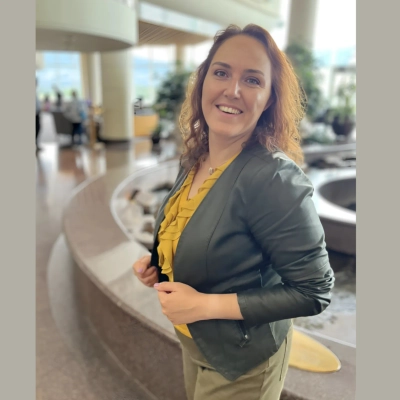 Zahra Carol Baghdadi
Zahra Carol Baghdadi
CEO & Founder, Crunch TimeZ CFO Services Inc.
Structure Communication for Productivity
During the first year, I was taught that replying to mails too fast causes more trouble than good. Within minutes, I responded because I believed that quick replies impressed clients but it only motivated them to send incoherent instructions during the day. One client has submitted twelve individual updates in one afternoon and this has caused me to do the same project three times. In one month alone, that pattern consumed almost 18 hours, when that should have been completed in a matter of less than 6.
That experience informs my business today because I condition clients to demand structured communication. I have been checking my mail three times a day and request all news in a single thread. This improved my revision time by nearly 30 percent and provided me with 12 hours every week to do high-value tasks. Clients are respectful when it becomes clear that there is a consistent delivery, and the business remains productive due to time spent on progress rather than resetting continuously.
 Jin Grey
Jin Grey
CEO and SEO Expert, Jin Grey
Embrace Discomfort to Overcome Limitations
The most valuable lesson I learned in my first year as an entrepreneur was the importance of stepping outside my comfort zone to keep the business alive. Despite having zero sales experience and skills, I forced myself to take over calling prospects to get our name in the market.
By preparing for calls, recording conversations for improvement, and treating each interaction as practice, I doubled our conversion rate from 30% to 60%. This experience alone shaped my approach to business and taught me a crucial lesson: Personal limitations are often self-imposed.
You’re only bad at something because you choose to believe you are. To all new entrepreneurs, take risks and practice things you never imagined you could even try.
 Stephen Greet
Stephen Greet
CEO & Co-Founder, BeamJobs
Prioritize Direction Over Momentum
In my first year of entrepreneurship, the most valuable lesson I learned was this:
Never confuse momentum with direction.
In those early days, I was always doing — new offers, new hires, new marketing tactics. The hustle felt productive. But what I realized, painfully, was that being busy didn’t mean I was building something sustainable.
At one point, I had more clients than I could handle and a team I couldn’t afford. I’d grown fast — but not smart.
So I stopped and asked a brutal question: If I keep doing things this way, where will I be in 12 months — and do I even want to go there?
That reset everything.
Now, I don’t launch without clarity. Every campaign starts with: What’s the goal? Who is it for? And what does success look like?
It’s why I run a lean, high-performing team today. We prioritize systems over chaos, direction over speed.
That lesson — direction over momentum — still shapes how I lead, how I coach, and how I build every business I touch.
 Peter Lewis
Peter Lewis
Chief Marketing Officer, Strategic Pete
Ship Fast and Focus on Clarity
My first year as an entrepreneur taught me that momentum matters more than perfection. When I launched my company in 2019, I had no idea how clunky the first version looked — but shipping fast gave me something real to improve on, and it helped me build trust with early readers.
I also learned that no one cares about your idea as much as you do — and that’s a good thing. It forces you to become your own biggest advocate, which sharpened both my messaging and my conviction. I went from second-guessing my niche to becoming a go-to voice in personal finance, just by showing up consistently.
Most importantly, I discovered that clarity beats hustle. When I started saying no to shiny distractions and focused on helping one type of person with one type of problem, growth came faster than expected.
 Firdaus Syazwani
Firdaus Syazwani
Founder, Dollar Bureau
Value Your Time and Expertise
The most valuable lesson I learned was learning to value my time — and by extension, my expertise. As a therapist and consultant, my heart has always been about helping people, and I initially wanted to make my services accessible to everyone. In trying to do that, I ran myself ragged.
I was dramatically undervaluing what I brought to the table — 16 years of clinical training, advanced degrees, and real executive experience. I was pricing my services as if I were fresh out of school instead of recognizing the depth of expertise I’d developed. Time became my most sacred resource, and I was essentially sacrificing myself by underpricing it.
The shift happened when I realized that undervaluing my services wasn’t actually serving anyone well. When you’re exhausted and overextended, you can’t show up fully for the clients who need you most. I had to learn that charging appropriately for my expertise wasn’t about being greedy — it was about sustainability and actually being able to deliver the transformational results people were seeking.
Now I approach business knowing that my time and expertise have real value. This mindset shift has allowed me to be more selective, more present with each client, and ultimately more effective. I can help fewer people at a deeper level rather than spreading myself too thin trying to help everyone.
 Rae Francis
Rae Francis
Counselor & Executive Resilience Coach, Rae Francis Consulting
Build Resilience Through Adaptability
In my first year of entrepreneurship, the most valuable lesson I learned was that resilience is everything. When I started the company in 2006, I had the passion and the qualifications, but I quickly realized that wasn’t enough. Clients needed proof, not promises, and every small win had to be earned with consistency and trust. There were moments when setbacks felt daunting, resources were limited, and gaining credibility in such a competitive market wasn’t easy.
What got me through was learning to adapt quickly and to see challenges not as failures, but as opportunities to improve. Every obstacle forced me to think differently, refine how we worked, and build stronger relationships with clients and partners. That mindset of persistence, adaptability, and staying solution-focused still shapes how I lead today.
It taught me that a business isn’t built on smooth sailing, but on how you respond when things don’t go as planned. That early experience became the foundation of our values: reliability, accountability, and a commitment to excellence no matter the circumstances. Nearly two decades later, I still draw on that first lesson; resilience is what transforms ambition into long-term success.
 Zahra Abidi
Zahra Abidi
Founder, Vision Translation
Empower Employees with Clear Expectations
The most valuable lesson I learned in my first year was the importance of proper employee management and clear expectations. Early on, I invested $30,000 in a full-time hire who left my company after 6 months because I failed to provide clear goals and was over-managing their work. This costly experience taught me that empowering employees while maintaining clear expectations and communications is an important management practice for sanity, retention, and productivity. Since then, I’ve implemented regular check-ins and performance reviews to ensure alignment between company objectives and employee growth.
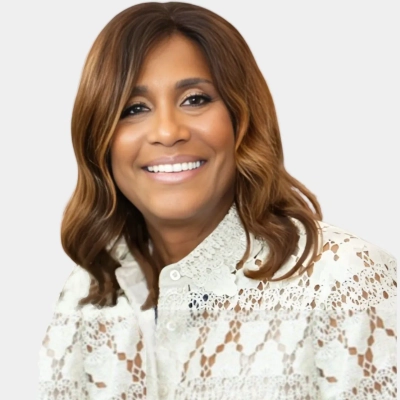 Franne McNeal
Franne McNeal
President, Significant Business Results LLC
Specialize to Grow Your Business
When I first started my business, I was a married mother of three with no business background. I was working as a Virtual Assistant and thought I needed to be proficient in everything and accept all tasks. However, I eventually learned that this approach only leads to burnout and kept me stuck earning less money.
I discovered that by saying no and focusing on what I excelled at, I could actually earn significantly more. Initially, I had believed that saying no meant missing opportunities and would hurt my business, but I was mistaken. When I began to specialize and decline certain tasks, I more than tripled my rates, and my business grew rapidly. I also enjoyed my work much more!
Over the years, fear still creeps in from time to time, but I remind myself of how I felt in the beginning. This makes it easier to say no, allowing me to continue growing. I’ve been in the online business space for over 10 years now, and I’ve learned that the more I specialize, the more my business grows!
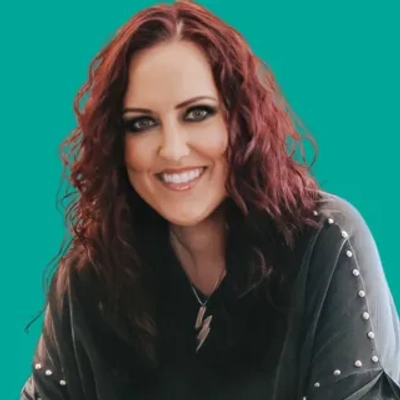 Sara Lingenfelter
Sara Lingenfelter
Online Operations Expert, Virtual Biz Partner
Regulate Your Nervous System for Success
The most valuable lesson I learned in my first year of entrepreneurship was that burnout is not a badge of honor; it’s a barrier to growth. Coming from a corporate background, I initially carried the belief that success meant pushing harder and doing more. Very quickly, I realized that pace was unsustainable, and that my nervous system was my greatest business asset. That realization shaped everything: I now design my business around steadiness and capacity, not constant hustle. It’s taught me that clarity, creativity, and authentic connection come from regulation, and that’s the foundation not only of how I run my company but also of the results I help my clients create.
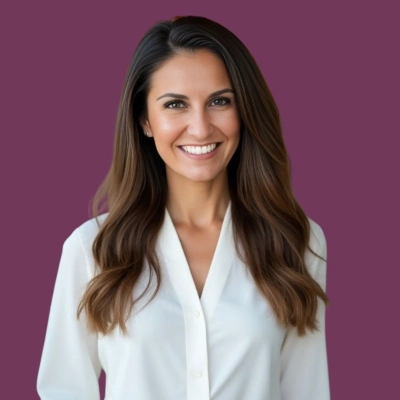 Karen Canham
Karen Canham
Entrepreneur/Board Certified Health and Wellness Coach, Karen Ann Wellness
Document Your Journey from Day One
Honestly, there are endless lessons, and every day comes with new learning. But one thing that really stands out from my first year is how crucial organizing things and documenting the journey actually is.
People tend to build first and then struggle to go back and document everything later. I did this too. But keeping things in order and future-proofing every single thing you do right from the start makes such a big difference.
Sure, iterations will happen along the way. But building that foundation with SOPs and clear responsibility sets from day one? That’s what separates the businesses that scale smoothly from the ones that hit walls.
 Astha Verma
Astha Verma
CEO & Founder, WrittenlyHub
Treat Setbacks as Learning Opportunities
The most valuable lesson I learned in my first year of entrepreneurship is that resilience matters more than perfection. No business plan survives exactly as imagined, and setbacks are inevitable. Instead of fearing mistakes, I began treating them as data points that guided my next move. This mindset has shaped my approach to business by making adaptability and continuous learning the foundation of how I lead Pawland today.
 Skandashree Bali
Skandashree Bali
CEO & Co-Founder, Pawland – Award Winning Pet Care Company in UAE
Embrace Flexibility in Business Ideas
There are two, actually.
This is common for start-up businesses: Your first idea for your business might not be the right one. Be flexible! And, find an area or industry that is underserved where you can add value… then go for it! Don’t take no for an answer. If you meet with rejection, get up, brush yourself off, and try again. There is always more than one way to skin the proverbial cat.
Keep your eyes and ears open because new opportunities can come your way at any time — and you don’t want to miss them. Coldly assess what the upside potential might be for any new opportunity. But, even more important, coldly assess what the downside risks might be. And, you know, typically when you do that, the downside risks aren’t that bad.
If it looks like a good horse comes your way, get on and ride it! The worst that can happen is that it doesn’t work out. Well, a lot of things don’t work out — but some do!
 Dr. Paul Dillon
Dr. Paul Dillon
Adjunct Instructor at Duke University’S Sanford School of Public Policy, President and CEO, Dillon Consulting Services LLC
Mistakes Are Stepping Stones to Success
The most valuable lesson I learned in my first year of entrepreneurship is that mistakes are inevitable, but embracing them as learning opportunities rather than failures is what separates successful founders from those who struggle. This learning mindset has become the foundation for how I build resilient, innovative businesses that can thrive in uncertainty.
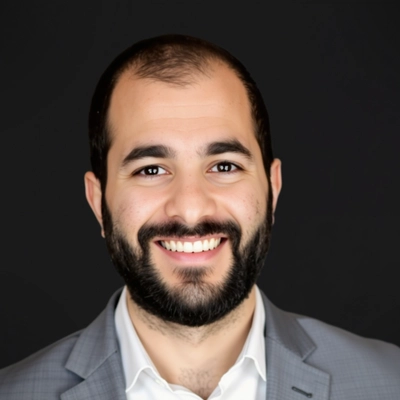 Neevai Esinli
Neevai Esinli
Founder and CEO, Esinli Capital
 Shivam Singh
Founder, ShivamSEO
Shivam Singh
Founder, ShivamSEO
 Rachael Mueller
Fractional COO, Hey Rachael Consulting
Rachael Mueller
Fractional COO, Hey Rachael Consulting
 David Craig White
Founder, Agent Mando – AI Search Consultant
David Craig White
Founder, Agent Mando – AI Search Consultant
 Ford Coleman
Founder, Runway
Ford Coleman
Founder, Runway
 Zahra Carol Baghdadi
CEO & Founder, Crunch TimeZ CFO Services Inc.
Zahra Carol Baghdadi
CEO & Founder, Crunch TimeZ CFO Services Inc.
 Jin Grey
CEO and SEO Expert, Jin Grey
Jin Grey
CEO and SEO Expert, Jin Grey
 Stephen Greet
CEO & Co-Founder, BeamJobs
Stephen Greet
CEO & Co-Founder, BeamJobs
 Peter Lewis
Chief Marketing Officer, Strategic Pete
Peter Lewis
Chief Marketing Officer, Strategic Pete
 Firdaus Syazwani
Founder, Dollar Bureau
Firdaus Syazwani
Founder, Dollar Bureau
 Rae Francis
Counselor & Executive Resilience Coach, Rae Francis Consulting
Rae Francis
Counselor & Executive Resilience Coach, Rae Francis Consulting
 Zahra Abidi
Founder, Vision Translation
Zahra Abidi
Founder, Vision Translation
 Franne McNeal
President, Significant Business Results LLC
Franne McNeal
President, Significant Business Results LLC
 Sara Lingenfelter
Online Operations Expert, Virtual Biz Partner
Sara Lingenfelter
Online Operations Expert, Virtual Biz Partner
 Karen Canham
Entrepreneur/Board Certified Health and Wellness Coach, Karen Ann Wellness
Karen Canham
Entrepreneur/Board Certified Health and Wellness Coach, Karen Ann Wellness
 Astha Verma
CEO & Founder, WrittenlyHub
Astha Verma
CEO & Founder, WrittenlyHub
 Skandashree Bali
CEO & Co-Founder, Pawland – Award Winning Pet Care Company in UAE
Skandashree Bali
CEO & Co-Founder, Pawland – Award Winning Pet Care Company in UAE
 Dr. Paul Dillon
Adjunct Instructor at Duke University’S Sanford School of Public Policy, President and CEO, Dillon Consulting Services LLC
Dr. Paul Dillon
Adjunct Instructor at Duke University’S Sanford School of Public Policy, President and CEO, Dillon Consulting Services LLC
 Neevai Esinli
Founder and CEO, Esinli Capital
Neevai Esinli
Founder and CEO, Esinli Capital




